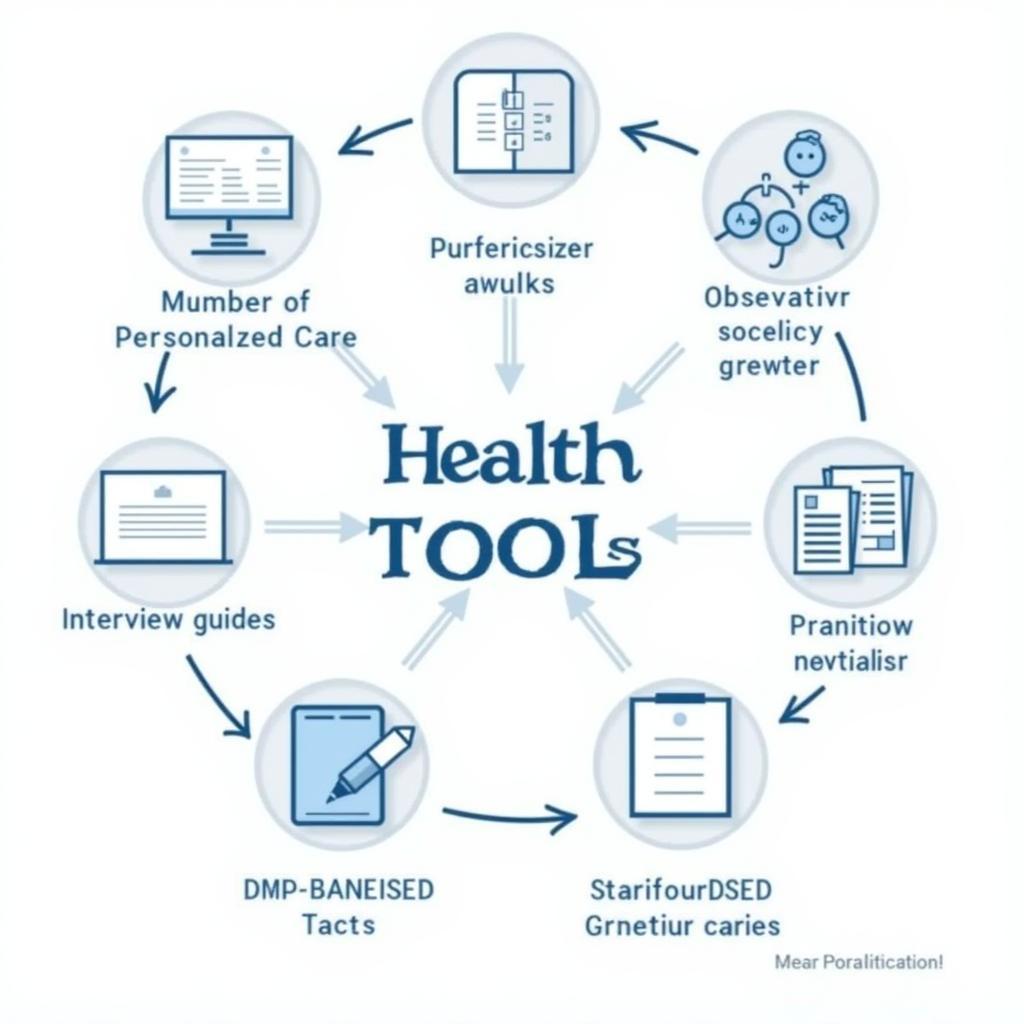Assessment tools are crucial in health and social care for understanding individual needs and tailoring appropriate support. They provide a structured way to gather information, enabling professionals to make informed decisions about care plans and interventions. These tools range from simple questionnaires to complex observational assessments, each designed for a specific purpose. Understanding these tools is essential for both professionals and those receiving care. Learn more about these vital tools and their role in providing effective and personalized care.
What exactly constitutes an assessment tool in this context? Assessment tools encompass a broad range of instruments designed to evaluate various aspects of a person’s physical, mental, and social well-being. They serve as a systematic method for gathering data, facilitating a better understanding of an individual’s needs and strengths. These tools can take many forms, from standardized questionnaires and checklists to structured interviews and observational assessments. Having access to reliable and validated assessment tools is essential for healthcare professionals to make informed decisions about care planning and intervention. For instance, a validated assessment tool like those found in primary care, can help determine the best course of treatment.
Types of Assessment Tools and Their Applications
Assessment tools cater to diverse needs, addressing physical health, mental health, social functioning, and risk factors. They are categorized based on their purpose, such as screening tools for early detection of potential issues, diagnostic tools for confirming the presence of specific conditions, and evaluative tools for monitoring progress and effectiveness of interventions. Choosing the appropriate tool depends on the specific context and the individual’s circumstances. A bereavement risk assessment, for instance, helps to determine the level of support needed for individuals coping with loss, especially within palliative care settings.
 Types of Assessment Tools in Health and Social Care
Types of Assessment Tools in Health and Social Care
Using Assessment Tools Effectively
Using assessment tools effectively requires careful consideration of several factors. Firstly, choosing the right tool is paramount, ensuring its relevance to the individual’s situation and the information being sought. Secondly, administering the tool correctly, following standardized procedures and ensuring a comfortable and supportive environment for the individual, is crucial. Finally, interpreting the results accurately and integrating them into the overall care plan are essential for maximizing the tool’s benefits. Furthermore, understanding the limitations of each tool and using professional judgment alongside the assessment results is vital for providing comprehensive care. Consider the ESAS tool in palliative care as a great example of a targeted assessment method.
bereavement risk assessment tools palliative care
Benefits of Using Standardized Assessment Tools
Standardized assessment tools offer numerous advantages in health and social care. They provide objectivity and consistency, minimizing subjective biases and ensuring comparable results across different individuals and settings. Moreover, standardized tools facilitate effective communication among professionals, enabling a shared understanding of the individual’s needs and progress. They also contribute to evidence-based practice by providing measurable data for evaluating interventions and improving service delivery. The use of validated tools enhances the credibility and reliability of assessments, leading to more informed and effective care planning. These validated assessment tools play a critical role in primary care for accurate diagnosis and treatment planning.
Ensuring Accuracy and Reliability
To ensure the accuracy and reliability of assessment tools, several steps are crucial. First, using validated tools that have undergone rigorous testing and demonstrated reliability is paramount. Second, regular training and calibration for professionals administering the tools are essential to maintain consistency and minimize errors. Third, understanding the limitations of each tool and considering factors that might influence the results, such as cultural background and language proficiency, is crucial for accurate interpretation.
The Future of Assessment Tools in Healthcare
Technology is transforming the landscape of assessment tools, with increasing use of digital platforms and mobile applications. These advancements offer greater accessibility, efficiency, and real-time data collection capabilities. Moreover, integration of artificial intelligence and machine learning is paving the way for more personalized and predictive assessments, enabling proactive interventions and improved outcomes. Embracing these innovations while ensuring ethical considerations and data privacy are paramount for optimizing the benefits of assessment tools in the future. The development of care pathways, facilitated by dedicated tool kits, is becoming increasingly important in providing structured and streamlined care.
“Assessment tools are not just about collecting data,” says Dr. Emily Carter, a leading geriatric physician. “They are about understanding the individual’s story, their strengths, and their challenges, and using that information to empower them to live their best lives.”
developing care pathways the tool kit
validated assessment tools primary care
In conclusion, assessment tools are invaluable resources in health and social care, providing a structured and systematic approach to understanding individual needs and tailoring appropriate support. By ensuring accurate and reliable assessments, these tools contribute to informed decision-making, improved care planning, and ultimately, better outcomes for individuals. Embracing technological advancements and continuing to refine these tools will be essential for meeting the evolving needs of individuals and enhancing the quality of care in the future.
FAQ
- What are the different types of assessment tools?
- How do I choose the right assessment tool?
- What are the benefits of using standardized assessment tools?
- How can I ensure the accuracy of assessment results?
- What is the future of assessment tools in healthcare?
- Where can I find validated assessment tools for primary care?
- How can assessment tools improve care planning?
Need assistance? Contact us via WhatsApp: +1(641)206-8880, Email: [email protected] or visit our office at 910 Cedar Lane, Chicago, IL 60605, USA. We offer 24/7 customer support.

Leave a Reply